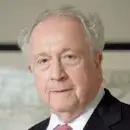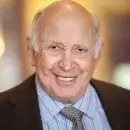Corporate Responsibility: Beyond Regulation
This project examined the factors underlying recent scandals at a number of American corporations. The project’s publication, Restoring Trust in American Business, includes a set of recommendations for rebuilding the trust upon which the American system of capitalism depends.
In the wake of the scandals that hit the corporate world in 2001 and 2002, the American Academy of Arts & Sciences initiated a project on corporate responsibility to examine the causes of, and conditions surrounding, the malfunctioning of critical parts of the corporate system. Given its independence and nonpartisanship, the Academy was well suited to explore the institutional foundation on which public trust in our economic institutions is based and to contribute to the public discourse needed to restore that trust.
Large-scale enterprise, financed by stock and bond markets, dominates the American economy. This system has been hugely successful, but at its core lies an essential but fragile predicate: trust. Recently, much of the trust upon which our capitalist system depends appears to have been badly eroded, as egregious instances of corporate misconduct have come to light. Moreover, various professions relied upon to help ensure ethical corporate behavior have disappointed the public, with some of their members themselves implicated in corporate misconduct.
The initial phase of the corporate responsibility project included two workshops held in 2003. The first, which took place at the House of the Academy, focused on a paper by John Reed regarding values and corporate responsibility. The second workshop, a series of panel discussions held in New York City, considered the responsibilities of six professional and profession-like roles—auditor, lawyer, journalist, investment banker, corporate director, and regulator—in relation to corporate conduct. The participants in each of the two workshops included both academics and practitioners. The final product of this project phase is a book, titled Restoring Trust in American Business, which includes the papers presented at both workshops (as revised by their authors), written commentaries submitted by other participants, and the project steering committee’s own consensus statement and policy recommendations. The committee circulated its findings to the corporate community, to regulators and legislators, and to the broad public.
Corporate Responsibility Steering Committee
- Martin Lipton, cochair (Wachtell, Lipton, Rosen & Katz)
- Jay Lorsch, cochair (Harvard Business School)
- Larry Sonsini, cochair (Wilson Sonsini Goodrich & Rosati)
- William Allen (New York University, Center for Law and Business)
- John Biggs (New York City)
- Margaret Blair (Vanderbilt University School of Law)
- Richard Buxbaum (Boalt Hall School of Law)
- James Cochrane (New York City)
- Michael Gellert (Windcrest Partners)
- Amory Houghton, Jr. (US House of Representatives)
- Rakesh Khurana (Harvard Business School)
- Douglass North (Washington University in St. Louis)
- Geneva Overholser (University of Missouri School of Journalism)
- John Reed (New York City)
- Mark Roe (Harvard Law School)
- Felix Rohatyn (New York City)
- Gerald Rosenfeld (Rothschild North America)
- John Rosenwald (Bear Stearns)
- Damon Silvers (AFL-CIO)
- Michael Useem (The Wharton School)
- Alfred Chandler, advisor (Harvard Business School, emeritus)
- Leslie Berlowitz (American Academy of Arts and Sciences)
- Andy Zelleke, rapporteur (American Academy of Arts & Sciences)

